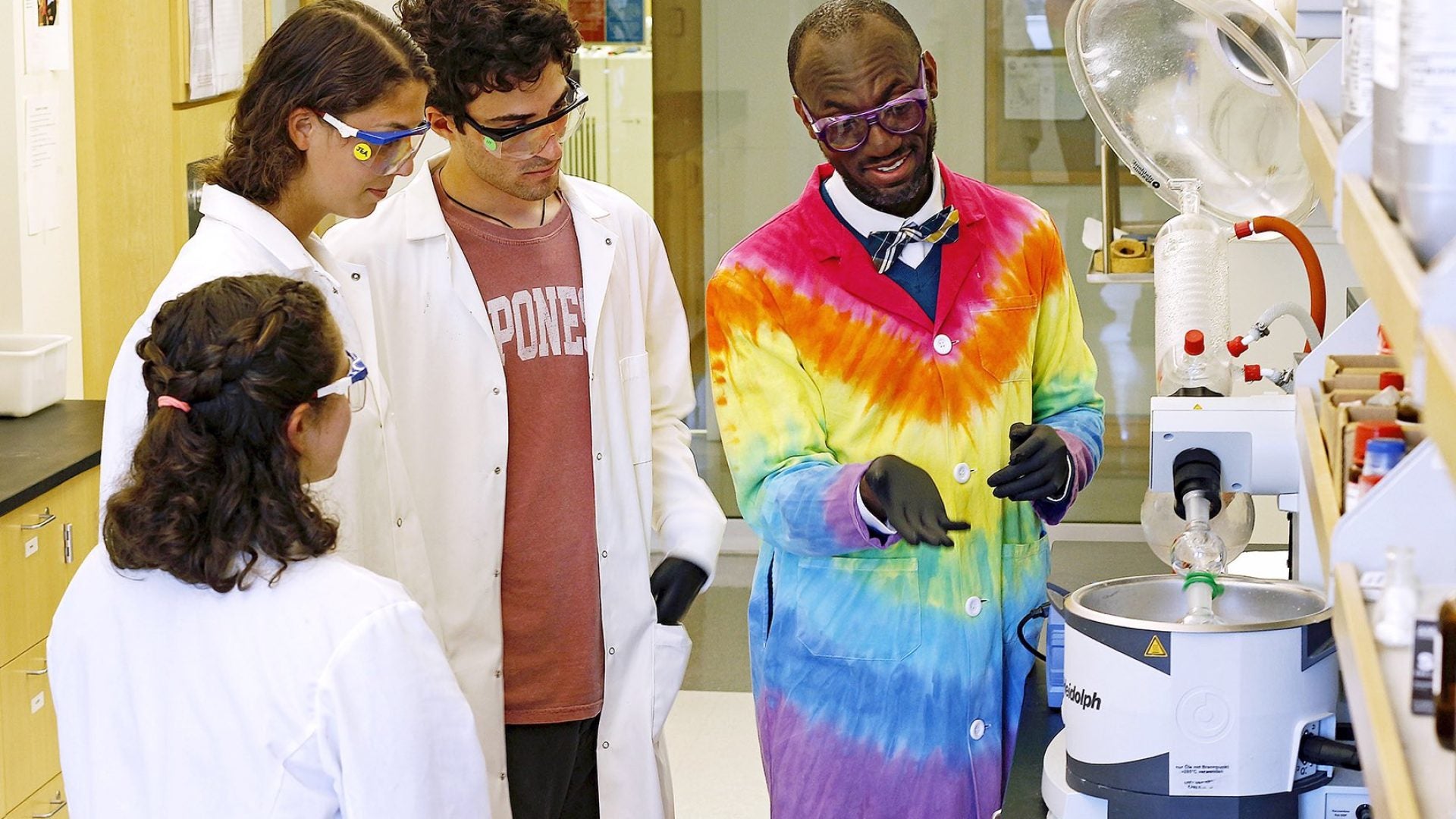Transcript

Dr. André K. Isaacs is a charismatic and innovative professor who incorporates choreography into his chemistry classes.
With catchy songs and trendy dances, Isaacs inspires his students to succeed and urges other educators to foster a welcoming and inclusive environment in the classroom.
While almost a quarter of a million people follow his choreographed dance videos on TikTok, this associate professor of chemistry at the College of the Holy Cross in Massachusetts says his main goal is to connect with students and show them what is possible in the field of science, technology, engineering, and math (STEM).
“The whole point of the dancing is to meet students where they’re at, in whatever ways they need,” he told The Today Show. The dancing professor has posted nearly 150 short videos on TikTok, Instagram, and Twitter featuring himself and his students performing, such as a class recreation of Rihanna’s 2023 Super Bowl dance moves in his lab.
Dr. Isaacs’ interest in chemistry began as a child in Kingston, Jamaica, when he was inspired by his uncle, a teacher who found fun methods to relate science with real-life events. “If it wasn’t for his guidance, I would not be a chemist today,” Isaacs said.
In 2005, he moved to the United States to pursue his bachelor’s degree in chemistry at the College of the Holy Cross. He earned his Ph.D. in chemistry from the University of Pennsylvania in 2011. Then, he went on to conduct a postdoctoral fellowship at the University of California, Berkeley before he went back the College of the Holy Cross as a professor.
As a Black, queer chemist, Isaacs strives to mentor future scientists and advocate for queer students on campus and social media. Through his mentoring of students, Dr. Issacs seeks to foster a sense of community and instill confidence in them, enabling them to take scientific risks and share ideas with peers without fear that they might not be correct.
“Making mistakes and failure is a part of the process,” he recently told Advanced Science News. “That is something I struggled with. I wanted every reaction to work, but I’ve learned more from my failures than I learned from my successes. I think they’ve made me a better scientist.”
He attributes his approach to students today to his own experience of coming out as a queer graduate student. While he was dealing with a lack of support from his family and friends at the time, which he believes affected his ability to work efficiently, he relied on his adviser and other friends for support and encouragement while he dealt with rejection from others. He intends to treat his students as collaborators to demonstrate that they are learning from one another.
“I think it’s a mutually beneficial relationship when we build an alliance versus a power dynamic, where they’re always just subordinate,” Isaacs shared with Holy Cross University. “It makes it easier for my students to communicate their failures, concerns, and questions when they know you’re not going to be mean to them or that they can just joke with you, and you all can smile.”
“I think my biggest contribution is that I am helping to train some stellar students who are going to make a huge impact on our world,” Isaacs told the university. “Not just because of their talents in the lab, but because of the way in which they view diversity, the way in which they embrace each other, and the values they take on, and I think they are going to be impactful. Training students has been the biggest joy of my career.”




